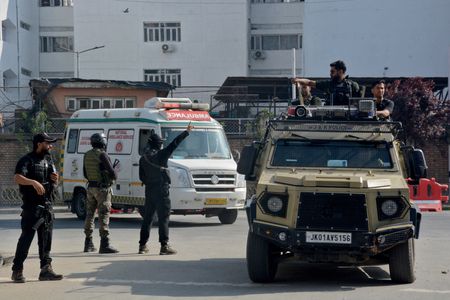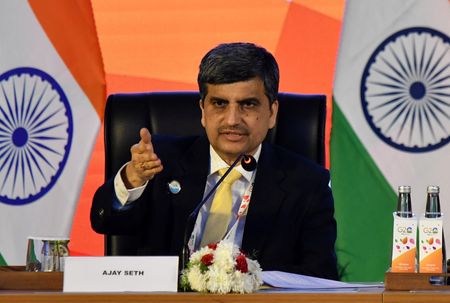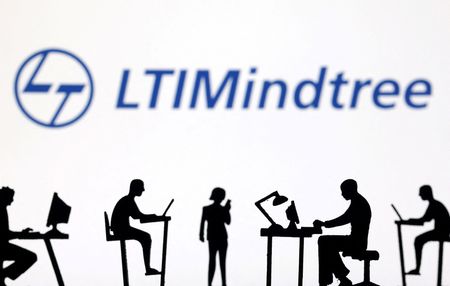By Swati Bhat and Siddhi Nayak
MUMBAI (Reuters) -Inflation in India is expected to stay near target this fiscal year, providing space to support growth through further monetary easing, members of the country’s rate-setting panel said in the minutes of April policy that were released on Wednesday.
India’s Monetary Policy Committee (MPC), which consists of three members of Reserve Bank of India (RBI) and three external members, cut the key repo rate by 25 basis points to 6% earlier at the meeting while changing the stance to “accommodative” from “neutral”.
The MPC had kicked off the easing cycle with a quarter-point reduction in February, its first cut in nearly five years.
“When consumer price inflation is decisively around its target rate of 4.0% and growth is still moderate and recovering, monetary policy needs to nurture domestic demand impulses to further increase the growth momentum,” RBI Governor Sanjay Malhotra wrote in the minutes.
India’s retail inflation slipped to a more-than-five-year low of 3.34% in March as food prices continued to moderate. Above-average monsoon rains could bode well for food prices.
In April, the RBI lowered its GDP growth estimate for the current fiscal year to 6.5% from 6.7%.
U.S. tariff policy flip flops, which have roiled financial markets, are expected to hit global growth as well.
Members of India’s rate-setting panel said there was no clear estimate of the impact the U.S.-China trade war might have on the domestic economy.
External member Saugata Bhattacharya said that if the trade tariff actions are not significantly diluted, global trade and growth will slow down materially, likely spilling over into India via external channels, and further decelerating India’s growth.
The considerable progress achieved on the disinflation front has offered latitude to monetary policy to be growth supportive, RBI Executive Director Rajiv Ranjan said.
“This state contingent policy preference is the true spirit of flexible inflation targeting,” he said.
(Reporting by Swati Bhat and Siddhi Nayak; Editing by Mrigank Dhaniwala)








